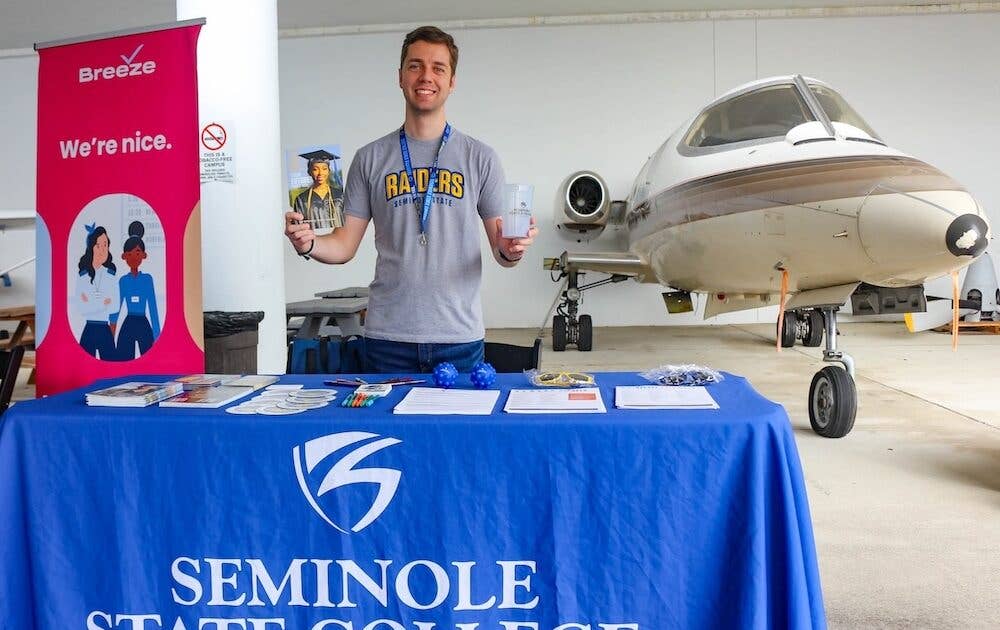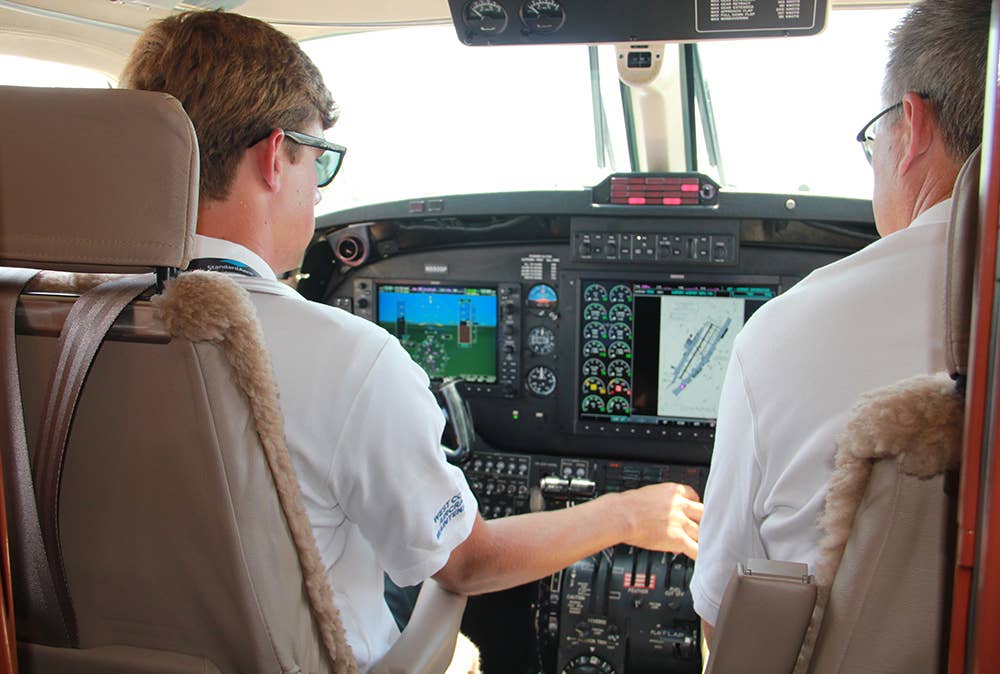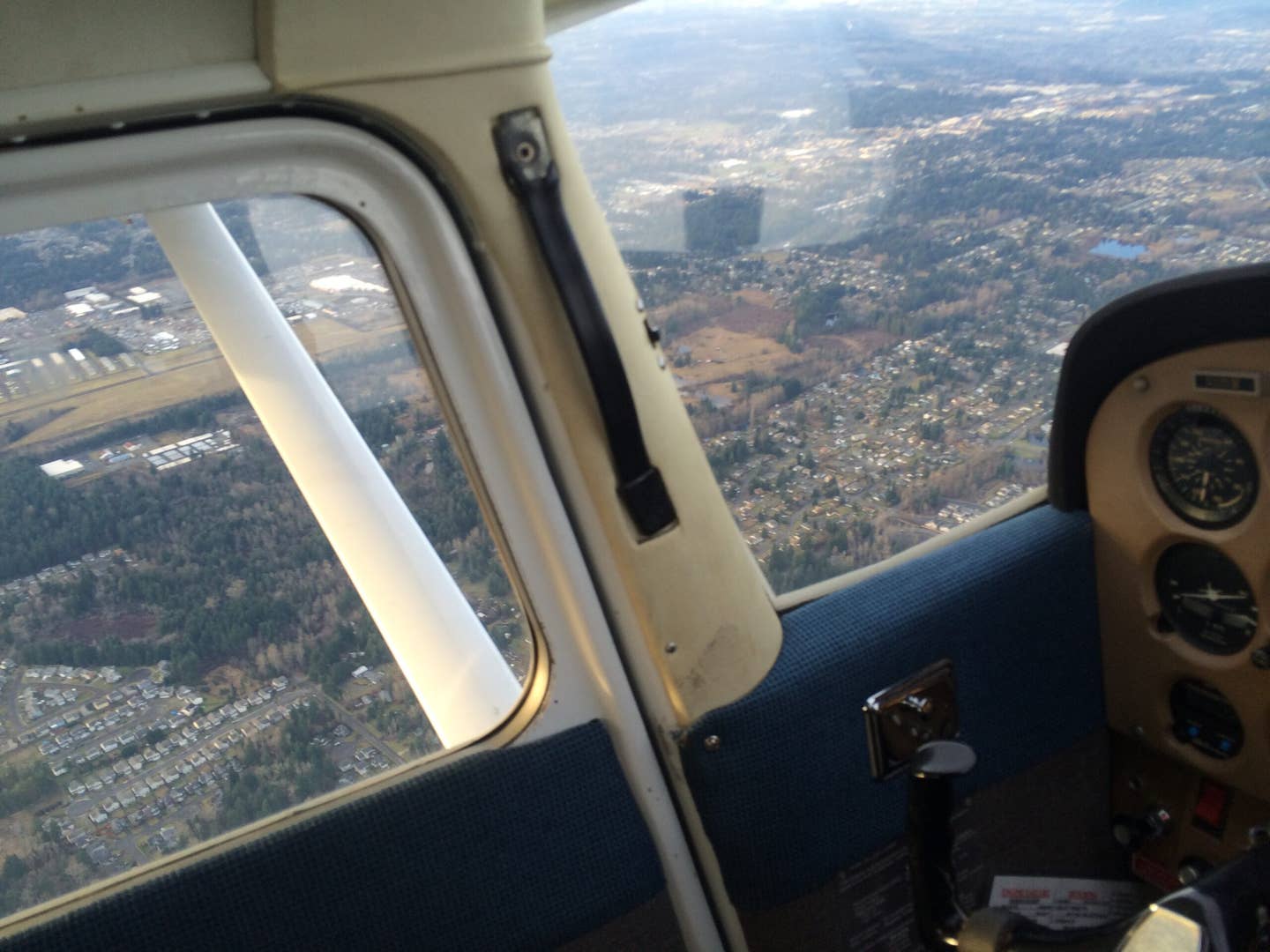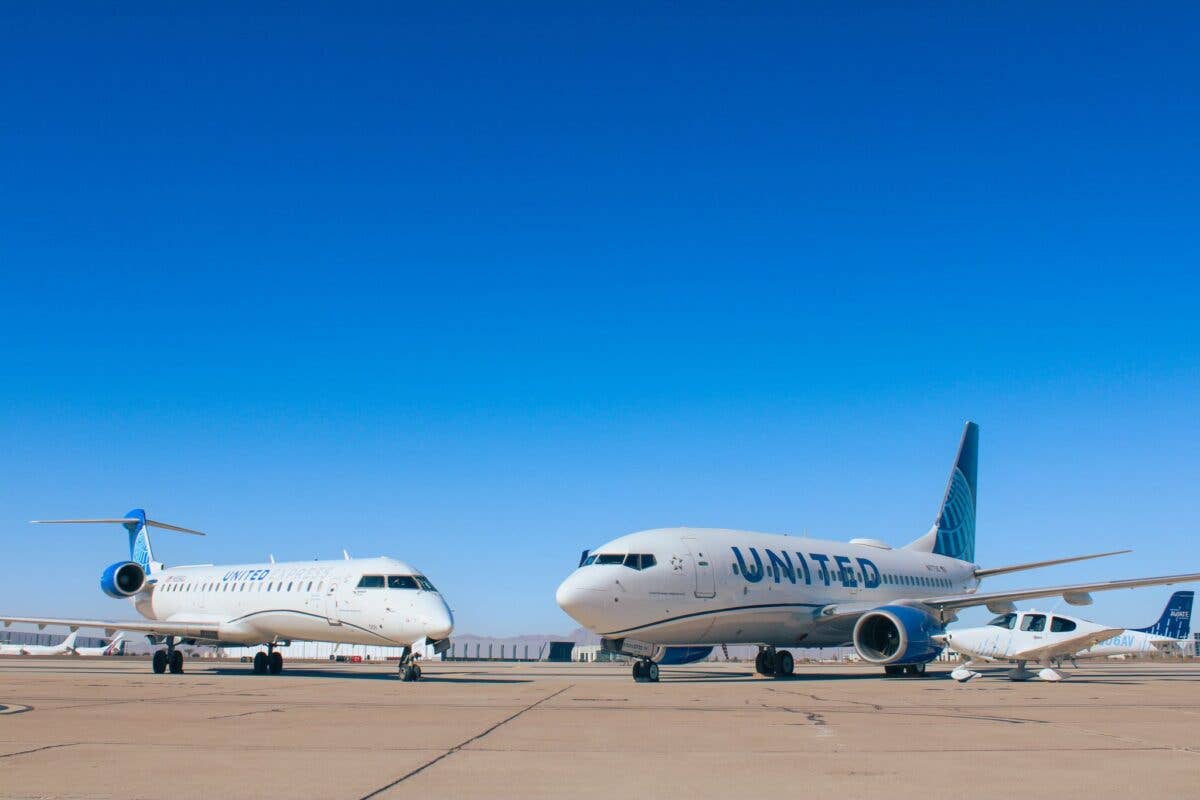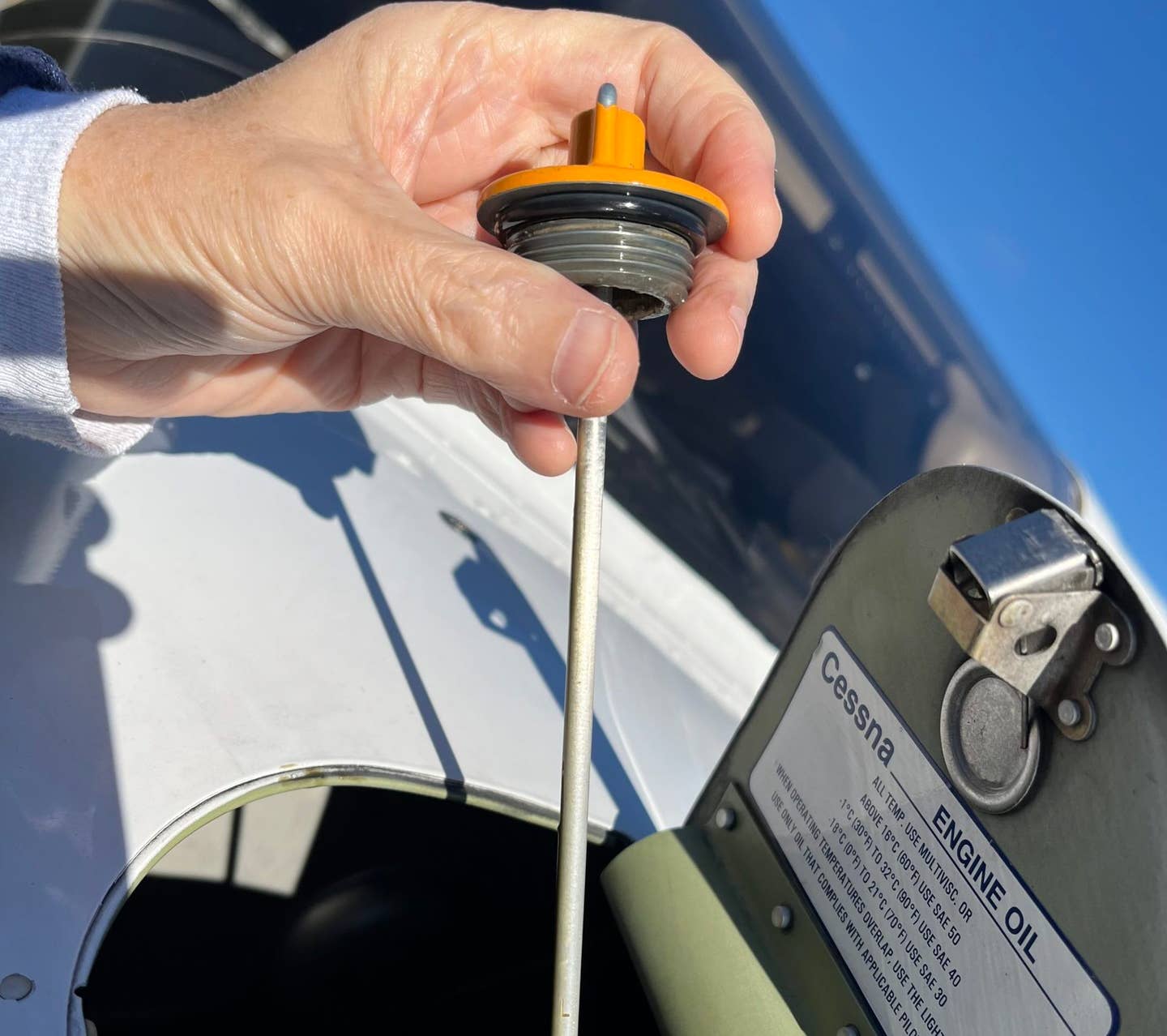Knowledge Tests Include Preparation of the Applicant, Location
An instructor reminds us to respect the testing process while pointing out its limitations.
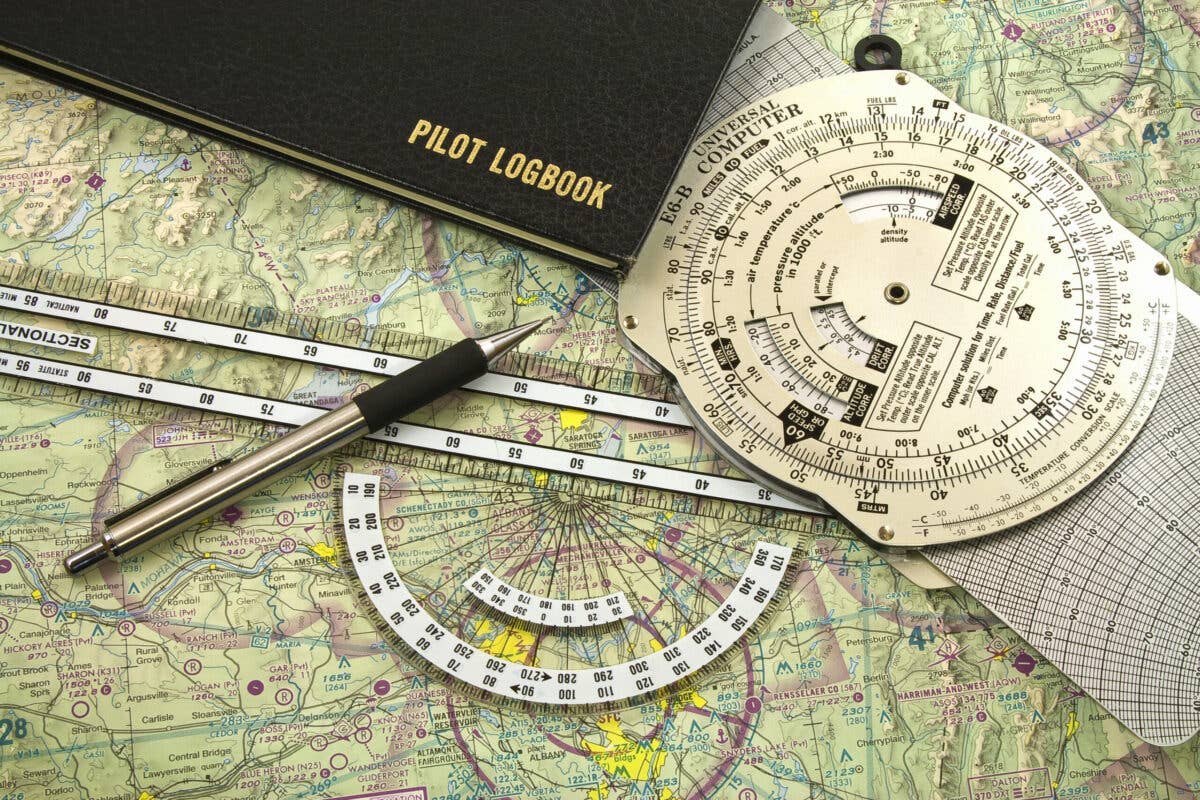
When you take your knowledge exam, you should know how to use a mechanical E6-B because some testing centers will not allow an electronic one. [Credit: Shutterstock]
It’s true: $175 is a lot of money to pay for a two hour, 60-question test. Just ask anyone who has taken the private pilot airplane knowledge exam recently at a flight school or FBO.
In reality, the tests are offered by PSI Services, Inc. The FBOs that provide testing are contractors, offering the tests as a convenience to their customers. The FBOs are currently paid $65 for each test, but as of January 1, 2023, payment to the FBOs will drop to $22 per test—and that is making some FBOs reconsider offering the service.
What does this mean to aspiring pilots? Finding a place to take the knowledge test may become more difficult.
A Monopoly
PSI Services, Inc. is a global company, and the only entity authorized by the FAA to administer the knowledge tests required for obtaining a pilot certificate or certain ratings. In the past there were two other providers, Laser Grade and (CATS) Certification Activity Tracking System, but both are have gone the way of the dodo bird. This becomes apparent when you go to the FAA website and select “Airman Testing” and “Find a Testing Center,” and PSI is the only provider that pops up. You enter your zipcode into the appropriate search box and up pops a list of testing centers within a certain radius, say 50 miles.
PSI has a few dedicated testing centers in larger cities with 20 to 30 test stations, but most of the facilities are small, third-party operations at FBOs and flight schools with no more than three or four seats. In addition to aviation tests, PSI also provides tests for cosmetology, real estate, and building trades—in short, that testing center can be a busy place, so you may be competing for space.
The tests are taken on a computer—so please don't call them “written” tests, because they haven’t been written tests since the Reagan administration. Today, the only writing the applicant does is signing their name when they check in to the testing center and again when they check out.
The testing facility at the airport is usually one room equipped with a few computers, and a closed-circuit video system to monitor the test takers. The business has someone on staff who has been trained to proctor the tests. The applicant registers for the test on the PSI site and on test day, the tests are uploaded from PSI, and in theory, they should be waiting for the test taker when they get to the site. This is why you have to make an appointment in advance with PSI—and it is a good idea to call the testing location in advance to make sure they offer testing on a particular day.
Changes Ahead
The change in the compensation structure noted above that will come in 2023 came as a surprise to a few of the airport-based test providers FLYING reached out to. They had received the email with the notification of the change in the fee that they would receive, but had not fully read it yet.
It was noted that flight schools don't really make a lot of money on the test now—$65 doesn't go very far when you consider the vendors have to pay the salary of the test proctor, pay for the computers, utilities, internet access, cameras, testing supplies and insurance. The new fee of $22 won't cover those expenses, so it is likely that some FBOs will drop the knowledge test, and pilot applicants will lose this convenience.
Does the FAA collect a fee for the knowledge test? FLYING reached out to both the FAA and to PSI Inc., to inquire if the agency received payment for each test taken, but no response was received by press time.
Make the Test a Non-Event
Given the challenges of setting up the knowledge test, you want to make it a non-event, beginning with your arrival at the testing center. For starters, make sure you know how to get to the testing center and how long it will take you to get there before test day. Also, be sure to have identification that includes your photograph, signature, and home address. For most people this is a state identification card or driver's license.
That's the easy part. You also need, per the FAA, to demonstrate you are prepared to take the knowledge test by presenting one of the following:
- A certificate of graduation from a pilot training course conducted by an FAA-approved pilot school, or a statement of accomplishment from the school certifying the satisfactory completion of the ground-school portion of such a course. These are often issued by ground school instructors from Part 141 programs at the end of the course, provided the applicant has passed the final exam. Check for an expiration date: Some schools give their learners a limit of 60 days to take the test, and if it is not completed within that window they must retake the course or get a CFI to sign them off as ready to pass the test.
- An endorsement from an FAA-certificated ground or flight instructor, certifying that you have satisfactorily completed the required ground instruction. This endorsement is found in Advisory Circular 61-65: Aeronautical Knowledge Test: FAR 61.35(a)(1), 61.103(d), and 61.105. It states: “I certify that [First name, MI, Last name] has received the required training in accordance with § 61.105. I have determined [he or she] is prepared for the [name of] knowledge test.” For aspiring fixed wing pilots the name of the test is “Private Pilot Airplane.”
- A certificate of graduation or statement of accomplishment from a ground school course conducted by an agency such as a high school, college, adult education program, the Civil Air Patrol, or an ROTC Flight Training Program—again, double check for an expiration date.
- A certificate of graduation from a home-study course developed by the aeronautical enterprise providing the study material. These are your online courses such as Sporty's, King Schools, or Gold Seal.
Don't expect to walk into the FBO or flight school on the day of your test and have a new-to-you flight instructor sign you off on the spot. No professional instructor will provide an endorsement unless they are confident that you can pass the test.
Practice Tests First
Before you are endorsed for the $175 test, your instructor may ask you to bring them three practice tests all done in the same week with a score of 90 percent or higher. These practice tests can be found online from a variety of providers. Do this and you will get the endorsement.
I am one of the instructors who asks for this. Why? Because 20-plus years as a ground instructor has taught me that most people lose at least 10 points off their scores when they walk into the testing center. I am not the only CFI who has seen this scenario play itself out. In fact, it has been a topic of discussion at seminars and instructor symposiums, ergo, we want you to go in over-prepared—so over-prepared that you can pass that test on a bad day with a nosebleed.
The minimum passing score on the test is 70, but the better the score on the knowledge test, the less stressful the checkride tends to be. Most examiners use the soft spots, as identified by wrong answers on the knowledge test, to craft the scenarios for the check ride.
Other Tips
1. Leave your cellphone in the car. You will not be allowed to use it in the testing center.
2. Use the piece of scratch paper issued at the testing center to make a ruler using the scale from the figures of sectional excerpts provided in the test supplement (also issued at the testing center).
3. Even if you use an electronic E6-B, know how to use a mechanical E6-B, because some testing centers will not allow the electronic ones (although they are supposed to, per AC 60-11C) unless you prove it is not pre-programmed with answers. They may ask you to remove, then reinstall the batteries to prove it has not been programmed. If you forgot your E6-B, they may loan you a mechanical one. They will let you borrow a calculator and also let you use a plotter—but honestly I have never figured out why, since the scale on the plotter and on the mechanical E6-B does not match what is on the test book figures.
4. Figure out how to zoom in the images on the screen of the computer and either bring or ask for a magnifying glass if you need one. Test centers have these as well.
5. Another tip: Read the questions silently to yourself at least twice. You may find it helpful to move your lips as you read because this makes your brain slow down. Yes, I know every teacher who is reading this just cringed, but some of the questions can be worded in a very confusing manner. You sometimes need to slow down to determine what is truly being asked. This is particularly true on the performance questions.
After the Test
When you have passed the test you will be given an airman computer test report that shows your score. Make a photocopy of this piece of paper and put the original in a safe place. You will present this document to the designated pilot examiner (DPE) the day of your check ride. In addition, your instructor will want to know the outcome of the test, so send him or her a photo of the test results.
If you missed any questions, the subject matter test codes will be indicated at the bottom of the paper. These codes can be found in the airman certification standards, so it behooves you to have a copy of the ACS (airman certification standards). For example, if you see the code PA.I.A.K1, that refers to certification requirements. Do yourself a favor and go through the ACS to find the areas you were found deficient in, and make a list of them. You may have missed just one question there, or it could be more—the codes indicate areas in which the applicant was found to be deficient.
Before you go for your private pilot check ride your CFI should go over those areas with you, and make an endorsement in your logbook indicating you have received additional instruction in those areas. The DPE will ask for the test results in advance of the check ride and will use them to build the scenarios for your practical test around these soft spots in your perceived knowledge.
If you do not pass the test, use those test codes to review your weak areas, and with the help of a good ground instructor, shore them up. You will get another endorsement and can take the test again. Make sure you bring that endorsement when you go for the retest.
A satisfactorily completed knowledge test is good for 24 calendar months. If the practical test for that certificate or rating is not satisfactorily completed during that period, another knowledge test must be taken.

Sign-up for newsletters & special offers!
Get the latest FLYING stories & special offers delivered directly to your inbox

